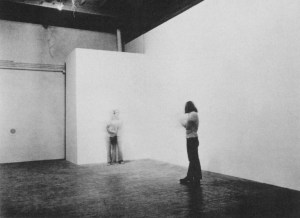Lesley Thulin // William Wordsworth’s pronouncement that the child is the “father of the Man” is perhaps the clearest articulation of British Romanticism’s revaluation of childhood (Wordsworth “My Heart Leaps Up” 7). For Wordsworth, childhood holds critical purchase over adulthood, priming the mind’s receptivity to nature as well as the creative faculty. Wordsworth’s autobiographical epic The Prelude, or Growth of a Poet’s Mind (1850) alludes to the poet’s youth as a formative period for his artistic development, tracing the emergence of his poetic sensibility to his early immersion in nature.
While much less cynical in its portrayal of adulthood, The Prelude redoubles William Blake’s earlier emphasis on childhood in Songs of Innocence (1789). Absolving children of Original Sin, one of Blake’s speakers tells an infant, “Sweet babe, in thy face / Holy image I can trace” (Blake 21-22). (Of course, Blake concedes that the same “[s]weet babe” might grow up to sell his own children into indentured servitude, as the first lines of “The Chimney-Sweeper” demonstrate.) While innocence finds its antithesis in Songs of Experience (1794), Blake sidelines childhood’s obverse: old age. Although old age appears more frequently—albeit sporadically—in Wordsworth, it does not seem to have as secure a footing as childhood in early Romantic literature.
As Susannah Ottaway argues in The Decline of Life: Old Age in Eighteenth-Century England (2004), definitions of old age vary across different cultures and historical periods. However, eighteenth-century England partially informs our contemporary understanding of the phenomenon. According to Ottaway, old age in eighteenth-century England assumed functional, cultural, and chronological meanings, which mapped on to physical deterioration, particular behaviors associated with old age, and the onset of the age of sixty, respectively.
Surprisingly, Simone de Beauvoir’s The Coming of Age (1970) elucidates what Ottaway might describe as the modern cultural definition of old age, by pointing to Romantic poetry. Citing Robert Burns’s poem “John Anderson my jo, John” (1790), de Beauvoir reads the elderly speaker as one half of an “ideal old couple in whom carnal passion has died quite away” (de Beauvoir 317). For this couple, de Beauvoir argues, only the infirmities of old age—and, eventually, death—are in sight. She writes, “The pair have climbed the hill of life side by side and once they tasted blissful hours; now with trembling steps but still hand in hand they must go together along the road that leads to the end of the journey” (317).
Although Wordsworth neither averts his gaze from this endpoint nor treats it as a monolith, several of his poems contradict Burns’s vision. In “The Old Cumberland Beggar” (1800), for example, the titular subject “travels on, a solitary Man, / His age has no companion” (Wordsworth “The Old Cumberland Beggar” 44-5). Despite the beggar’s “helpless” appearance, Wordsworth restores his dignity, cautioning a proud statesman against deeming the beggar “useless” (25, 67). Instead, Wordsworth compares the aged beggar to “a record which together binds / Past deeds and offices of charity” (81-2).
For all of its celebration of childhood, what sort of ontological claim, then, does Romantic literature make of old age? Unlike Wordsworth’s elders, Coleridge’s ancient mariner—perhaps the period’s best-known elder—stops short of death. Condemned to retell the story of how he slew the albatross, the mariner must perform penance through the act of narration. Despite Coleridge’s refusal of the “real world” in favor of the supernatural, and his desire for the imagination to exceed empiricism, the ancient mariner plays a role similar to that of Wordsworth’s Cumberland beggar: both act as autonomous records, or texts. Without tipping the scale in favor of the material or the ideal—one of Romanticism’s age-old tensions—old age in Romantic literature seems to reaffirm the elder as the child’s spectral double.
Works Cited
Blake, William. “Songs of Innocence and of Experience.” The Complete Poetry & Prose of William Blake. Ed. David V. Erdman. New York: Anchor Books, 1982. Print.
de Beauvoir, Simone. The Coming of Age. Trans. Patrick O’Brian. New York & London: W. W. Norton & Company. Print.
Wordsworth, William. “My heart leaps up when I behold.” William Wordsworth: The Major Works. Oxford: Oxford UP, 2011. 246. Print.
—. “The Old Cumberland Beggar.” William Wordsworth: The Major Works. Oxford: Oxford UP, 2011. 49-54. Print.
Photo courtesy of William Blake Archive.



